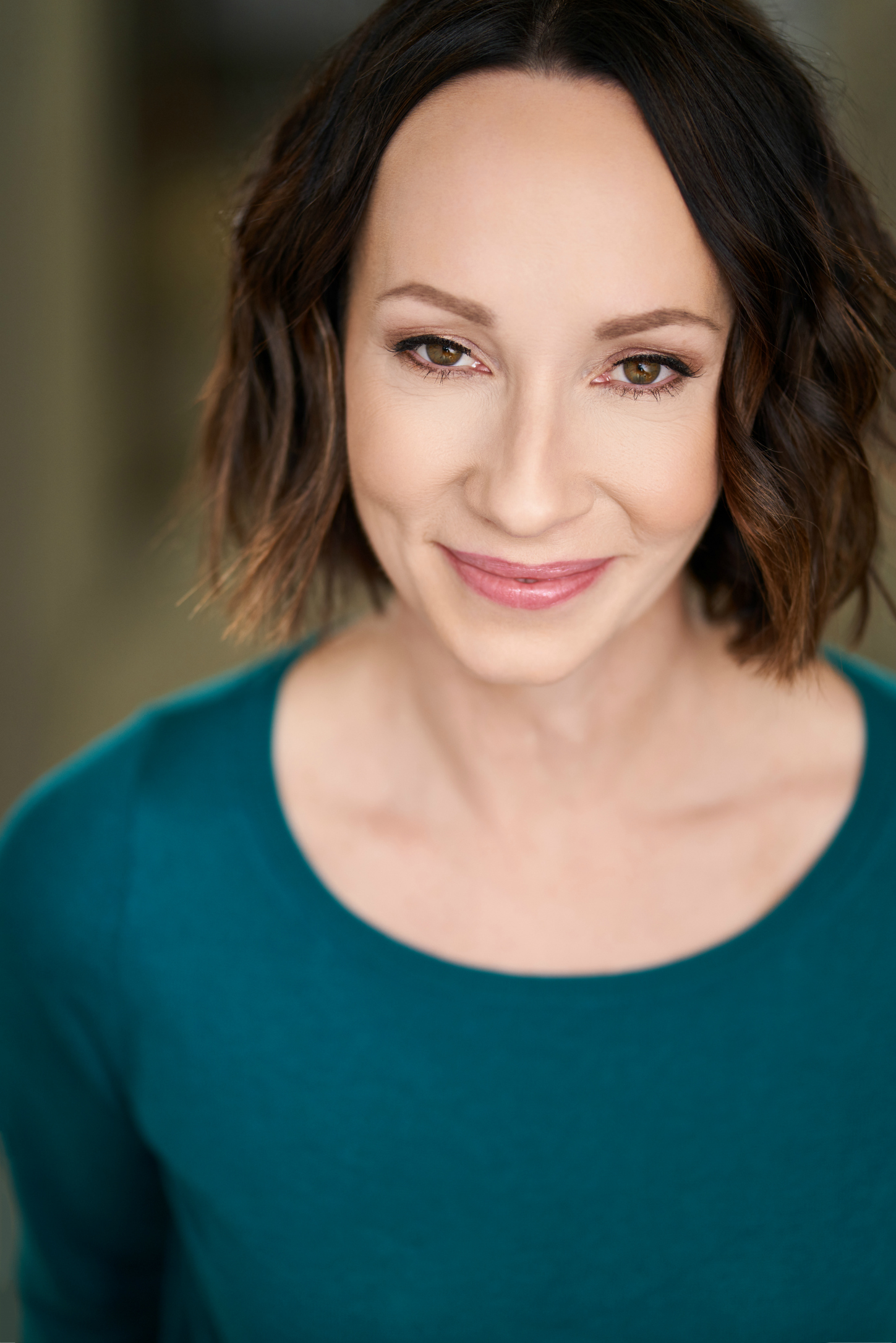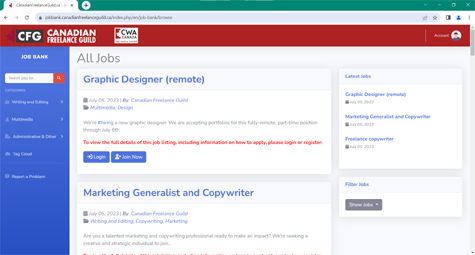In this regular feature, Story Board asks Canadian freelancers to share a few details about their work habits and their strategies for navigating the ups and downs of freelance life.
Leanne Allen is an award-winning producer, photographer and actor based in Victoria. She produces a television program called Culture Vulture TV, which explores the arts, entertainment, lifestyle and food in the Okanagan and on Vancouver Island.
Her eclectic career led her through the worlds of print and radio before she moved into television production. She previously created and published an alt weekly print magazine and hosted a show on CBC Radio.
Leanne took the time to speak with Story Board recently about the hustle of freelancing, the importance of taking risks, and the power of being small.
Where did your career in media start?
Back in 2000 when I was living in the Okanagan I saw a niche that wasn't filled and that niche was for an alt weekly. I had seen Monday Magazine in Victoria. That was the alt weekly that I read. And when I moved to the Okanagan for a year – I wasn't planning on doing anything in media, I was getting some practicum experience for an MA that year – but I really noticed a niche. And it's the typical story, I felt like my voice wasn't out there and it needed to be.
It's called Off Centre Magazine. Off Centre still exists, I think, but just barely. It was bought. I started it in 2000 and sold it in 2007 and then I ran it for another year.
So you decided to publish your own magazine instead of writing for others because you wanted to put your own stamp on it?
Totally. The Battle of Seattle had just happened and I was really inspired to tell that story in layman's terms to people because the media of the day, I found, were very top-down. Newspaper was a very top-down, elitist communication device and I felt like people weren't understanding what was going on because it wasn't being explained to them simply enough, so that was really my motivation to get Off Centre going.
What's the most important thing you learned from that experience?
It came to me in hindsight, because when I sold it to this huge media company it slowly died. And everyone asked me "doesn't that really kill you to see it slowly dying?" And I said “no, actually.” I turned around and couldn't believe I had done that myself. The thing was 25,000 copies, 50 pages, full colour. It was really robust. And I made a really good living and so did a bunch of other people that worked with me. So that's what I learned, I guess, is the power of being small.
Now you're working in video production. How did you get into that?
When I sold the magazine I did a cross-platform pilot for CBC that was radio and online cross-platform and unfortunately it didn't get taken. And then I moved to Vancouver Island and I looked around to see what was happening there and there was nothing happening online really so I thought I needed to start an online magazine – photo-based and more video-based.
So I just changed with the times because I can, because I'm agile. I can see trends coming and I can act on them. The tough part is educating people, because I don't have a huge name behind me. So for people to make a spend based on the trends that I see, that's the challenge. So it takes a lot of time.
In some ways you seem less like a freelancer and more like an independent media owner.
I feel like a freelancer now way more than I did before when I owned the magazine. I think that’s because of the nature of advertising. When the internet came along it changed the distribution channels a lot and now the businesses that are the most forward thinking are the ones that want to create their own content.
And so I've got this show, but it's all kind of pieced together because of the funding model. The funding model is a little bit different. Because I'm not just ads and content anymore. It doesn't really work like that for me. I'm too small to be a big TV network with ads, and so online I feel like more of a freelancer. I only just realized that in the last two months or so.
What does that mean to you – to feel like a freelancer?
It's just a constant hustle. I think things are changing so fast that you can't rely on a client for an annual buy anymore, for advertising for example. So it's a constant hustle and things are just changing so fast.
Do you do a lot of cold calling of clients?
Tons! And I hate it. I'm in a constant hustle. I've got a couple of sales reps that work part time for me here and there but I'm always cold calling, always hustling.
So you’re calling companies you think need to be producing their own content and pitching them with your ideas?
Yes. I have a number of series that I produce that I can fit businesses into. The most forward-thinking businesses are looking for original content. But that's still rare, unfortunately. As traditional media crumbles, businesses have to have almost an in-house magazine and it's really tough to do. Because it's not a flyer. People think it's easy to create content and it's actually really difficult.
Do you have training in video production?
I'm pretty much self-taught. I have an English and photography degree from years ago that I never thought I'd use. And then I did a small really super immersive week-long workshop, Gulf Islands Film and TV school and then the rest has really been self-taught.
You seem highly self-motivated.
Oh yeah. I am. And people ask what my secret is and I say "It's hunger." It's no big secret. But once I get an idea you can't stop me, and that can be good or bad. Our strengths are also our weaknesses. Luckily most of the time it's good.
In what sense can it be bad?
I take huge risks. I just went down to Los Angeles last week to meet with Warner Brothers development. And there was no way I could afford that. So I had to figure out how to make that happen. A lot of people say that what I do is impossible, and they're right. It is. But if I want to do something, I'll just figure out how to do it.
So what advice would you give to others who might be thinking about getting into this kind of business?
Be good at sales. Content is the fun part and I love doing it. Sales is the really hard part, and that's what'll kill you every time. That's what'll make you stop, is begging for money.
What are the biggest challenges of this kind of video production work?
It's way more resource heavy than print was. You're not just sitting down at a computer and writing a piece that goes to print. It depends on, at minimum, four other people on a small shoot. It depends on your shooter and your client and your host and your sound guy. And then there's all that money to pay out to those people. And then dealing with the client and all the logistics of setting up timing and scheduling.
But you must get some satisfaction out of seeing it come together.
Yes I got bored in print years ago and when I did I went to CBC Radio and I hosted and produced a show there in Kelowna. And then I got bored of radio. And that's when I went to TV and produced my own show. And now online incorporates everything. And that's what I love. I love a challenge. I love feeling satiated. With what I do there's so many different aspects to it. There's creative and tech and business. And I love it.
What’s the best thing you've ever done for professional development?
Honestly I think being forced to finance projects is the best thing. Being forced to produce it myself. No grants. Because it really proves the market and I think that that's important. Otherwise it's a one-way conversation. If you've got a great idea, that's great but that's only a fifth of the work. Somebody has to be willing to listen and be willing to fund it.
So if you can get the money behind it you know it's something that people are going to be interested in?
That's right. And that doesn't necessarily make it good or bad. If you can't get funding that certainly doesn't make a project bad. It doesn't have to be marketable. But I think that's probably my best professional development -- just doing it myself.
Why did you decide to become a member of CMG Freelance?
Because it's lonely out here! Simple as that.
What supports do you value most from your union?
The access to jobs, honestly. The 'Lancer, that's just fantastic. It's like having your own personal agent looking for work. That's a great resource. And just being connected and being part of something bigger is such a treat as a freelancer. Because we are left to our own devices so much. It's nice to feel support.
You made a video called Ten Reasons to Join CMG Freelance earlier this year. Are you going to be making more of those?
Yes, we're going to do little updates. So that'll be great, you'll have some little video updates each month. I think we're going to start next month in September.
You can find more information about Leanne's work at LAmediainc.ca and CultureVultureTV.com. And you can follow her on Twitter at @leanneallen.
Watch Leanne's video Ten Reasons to Join CMG Freelance:
*This interview has been edited for clarity and length





